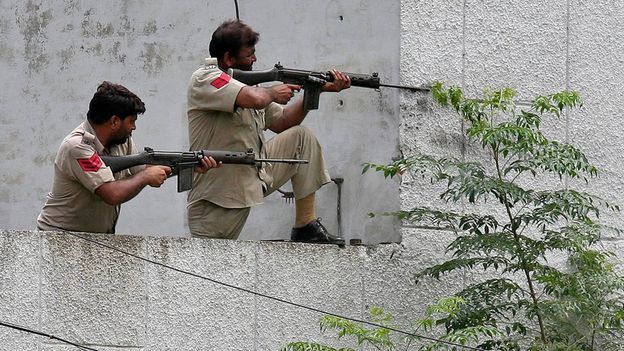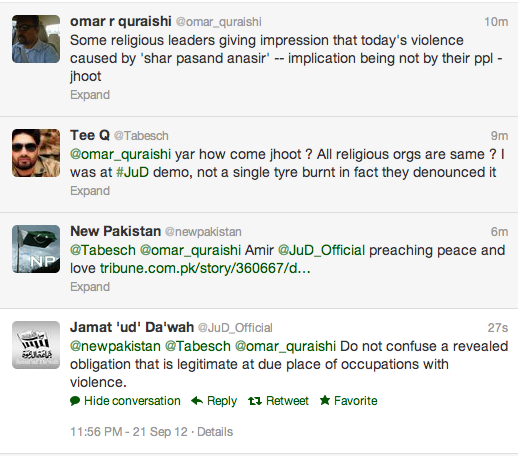
On Monday, a group of militants dressed in Indian Army uniforms carried out a deadly attack in Indian Punjab. It is too early to know who was behind the attack, but speculation has already begun. Indian media has predictably laid the blame squarely on Pakistan, while here we have been hearing reports that it was actually a revolt by Indian Sikh separatists. Seven people were killed before Indian security forces killed the three attackers in a battle that was drawn out as India was trying to capture the attackers alive. However, as much as India has suffered from this attack, Pakistan has also suffered, and will continue to suffer until we can raise the courage to face the disturbing reality.
Foreign Office quickly condemned the attack and reiterated Pakistan’s opposition to terrorism in all forms. Unfortunately, nobody is likely to take such condemnations as anything but pro forma statements. The Foreign Office has also said that Pakistan will not enforce economic sanctions against anti-India militant groups and the Interior Ministry has gone as far as to say that they can’t find any evidence that Jamaat-ud-Dawa is linked with Lashkar-e-Taiba. Simply put, government has no credibility on the issue of terrorism. Part of this may be by design.
While we do not know conclusively who the attackers are, the spin machines immediately went into overdrive. India of course blamed Pakistani militants, while ISPR began pumping out anti-Indian reports including new claims that a Chinese drone shot down a couple of weeks ago was part of an Indian spy operation. Maybe the timing is just coincidence, but it is certainly convenient. Worst, though, was the deafening roar of our Keyboard Commandoes who gleefully began trending #GurdaspurAwakesKhalistan, giving more reason to doubt the Foreign Office’s repeated claim that Pakistan condemns terrorism in all forms.
This gets to the heart of the problem for us. Not credibility, which we lost long ago, but the space that we continue to provide for terrorism to spread within our own borders. This is demonstrated perfectly in a conversation on Twitter:
.@newpakistan India doesn’t define “terrorism” for us and we should not look at terrorism from “Indian” lenses.
— Mateen Ul Waheed (@__mateen) July 27, 2015
This is the same view which is given by Jamaat-ud-Dawa.

The message is very clear: Even if these were not Pakistan-based jihadi militants who attacked India, we would support them if they were because we don’t consider anything we do as terrorism if we believe that it is in our interests. It is a very convenient double standard.
The problem is also very clear: This is a recipe for failure. Justifying terrorism can never be in our interests because if we can justify it, so can anyone else. Let us assume that is really was an attack by Sikh separatist militants. If we cheer them on, how can we complain if India cheers on Baloch speratist militants? If we support any terrorism, how can we be taken seriously when we claim to be doing the most to fight terrorism?
Several years ago someone discovered that we could play the victim card in the war on terrorism by reminding the world of how many innocents we have lost in terrorist attacks. We have played this card very well and have even managed to get American and Indian officials to repeat the statement which is then heavily reported at home. There is no doubt in my mind that we are the biggest victims of terrorism. The only doubt is whether we are victims of our own success.
![]()





